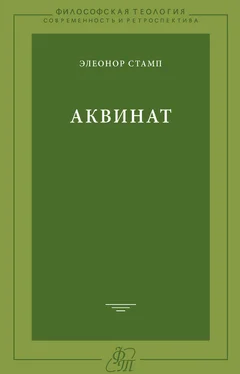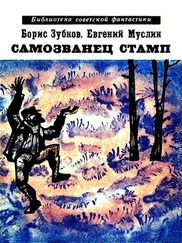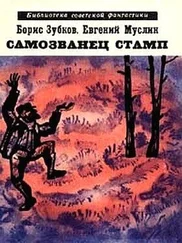In Heb Expositio super Epistolam ad Hebraeos
Толкование на Послание к евреям
In Met Sententia super Metaphysicam
Сентенции на Метафизику
In NE Sententia libri Ethicorum
Сентенция на книги Этики
In PA Sententia super Posteriora analytica
Сентенции на Вторую аналитику
In Phil Reportatio super Epistolam ad Philippenses
Изложение комментария на Послание к филиппийцам
In Rom Commentarium super Epistolam ad Romanos
Комментарий на Послание к римлянам
In Sent Scriptum super libros Sententiarum
Комментарий на книги Сентенций
In I Thess Reportatio super Epistolam Primam as Thessalonienses
Изложение комментария на 1 Послание к фессалоникийцам
QDA Quaestio disputata de anima
Спорный вопрос о душе
QDM Quaestiones disputatae de malo
Спорные вопросы о зле
QDP Quaestiones disputatae de potentia
Спорные вопросы о потенции
QDSC Quaestio disputata de spiritualibus creatures
Спорный вопрос о духовных творениях
QDV Quaestiones disputatae de veritate
Спорные вопросы об истине
QDVC Quaestiones disputatae de virtutibus in communi
Спорные вопросы о добродетелях вообще
QQ Quaestiones quodlibetales
Вопросы о чем угодно
SCG Summa contra gentiles
Сумма против язычников
ST Summa theologiae
Сумма теологии
Adams, Marilyn McCord (1986) “Redemptive Suffering: A Christian Solution to the Problem of Evil”, in Robert Audi and William Wainwright (eds), Rationality, Religious Belief and Moral Commitment: New Essays in the Philosophy of Religion (Ithaca, NY: Cornell University Press), pp. 248–267.
Adams, Robert Merrihew (1971) “Has It Been Proved that All Real Existence is Contingent?”, American Philosophical Quarterly 8: 284–291.
– (1973) “A Modified Divine Command Theory of Ethical Wrongness”, in Gene Outka and John P. Reeder Jr. (eds), Religion and Morality (Garden City, NY: Doubleday Anchor), pp. 318–347.
– (1979) “Divine Command Metaethics Modified Again”, Journal of Religious Ethics 7 (Spring): 66–79.
– (1983) “Divine Necessity”, Journal of Philosophy 80: 741–752.
– (1987) “Divine Commands and the Social Nature of Obligation”, Faith and Philosophy 4: 262–275.
– (1999) Finite and Infinite Goods: A Framework for Ethics (New York: Oxford University Press).
Aertsen, Jan (1988) Nature and Creature: Thomas Aquinas’s Way of Thought (Leiden: E. J. Brill).
– (1993) “Aquinas’ Philosophy in its Historical Setting”, in N. Kretzmann and E. Stump (eds), The Cambridge Companion to Aquinas (Cambridge: Cambridge University Press), pp. 12–37.
– (1996) Medieval Philosophy and the Transcendentals: The Case of Thomas Aquinas (Leiden: E. J. Brill).
Albritton, Rogers (1985) “Freedom of Will and Freedom of Action”, American Philosophical Association Proceedings and Addresses 59: 239–251.
Alston, William (1988) “The Deontological Conception of Epistemic Justification”, in J. E. Tomberlin (ed.), Philosophical Perspectives 2 Epistemology (Atascadero, CA: Ridgeview Publishing Co.), pp. 257–299; reprinted in Epistemic Justification: Essays in the Theory of Knowledge (Ithaca, NY: Cornell University Press, 1989), pp. 115–152.
– (1989) “Concepts of Epistemic Justification”, The Monist 68 (1985), 57–89; reprinted in Epistemic Justification. Essays in the Theory of Knowledge (Ithaca, NY: Cornell University Press), pp. 81–114.
– (1993) “Aquinas on Theological Predication: A Look Backward and a Look Forward,” in Eleonore Stump (ed.), Reasoned Faith (Ithaca, NY: Cornell University Press), pp. 145–178.
Ameno, Romano (1950) “Probabile fonte della nozione boeziana di eternità”, Filosofia I: 365–373.
Anderson, James F. (1953) An Introduction to the Metaphysics of St. Thomas
Aquinas (Chicago: Henry Regnery Co.).
Armstrong, Arthur Hilary (ed.) (1967) Plotinus, vol. 3. (London and Cambridge, MA: Harvard University Press).
Ashworth, Earline Jennifer (1991) “Signification and Modes of Signifying in
Thirteenth-Century Logic: A Preface to Aquinas on Analogy”, Medieval Philosophy and Theology 1: 39–67.
Audi, Robert (1993) “The Dimensions of Faith and the Demands of Reason”, in Eleonore Stump (ed.), Reasoned Faith (Ithaca, NY: Cornell University Press), pp. 70–92.
Ayo, Nicholas (1988) The Sermon-Conferences of St. Thomas Aquinas on the Apostles’ Creed (Notre Dame, IN: University of Notre Dame Press).
Baker, Lynne Rudder (1997) “Why Constitution is Not Identity”, Journal of Philosophy 94: 599–621.
– (1999) “Unity Without Identity: A New Look at Material Constitution”, Midwest Studies in Philosophy 23: 144–165.
– (2000) Persons and Bodies. A Constitution View (Cambridge: Cambridge University Press).
Barnes, Jonathan (1975) “Aristotle’s Theory of Demonstration”, in Jonathan
Barnes, Malcolm Schofield, and Richard Sorabji (eds), Articles on Aristotle (London: Duckworth), pp. 65–87.
Beierwaltes, Werner (1967) Plotin über Ewigkeit und Zeit (Enneade iii 7) (Frankfurt am Main: Klostermann).
Bennett, Daniel (1969) “The Divine Simplicity”, Journal of Philosophy 66: 628–637.
Bennett, Jonathan (1990) “Why is Belief Involuntary?”, Analysis 50: 87–107.
Bernstein, Richard (1996) Hannah Arendt and the Jewish Question (Cambridge, MA: MIT Press).
Bezwinska, Jadwiga and Czech, Danuta (1984) KL Auschwitz Seen by the SS: Hoess, Broad, Kremer (New York: Howard Fertig).
Bigongiari, Dino (ed.) (1953) The Political Ideas of St. Thomas Aquinas (New York: Hafner).
Blandino, G. and Molinaro, A. (eds) (1989) The Critical Problem of Knowledge (Rome: Herder – Pontifical University of Lateran).
Boethius (1973) The Consolation of Philosophy, in H. F. Stewart, E. K. Rand, and S. J. Tester, Boethius: The Theological Tractates and The Consolation of Philosophy (London and Cambridge, MA: Harvard University Press).
Boyd, Richard (1980) “Materialism without Reductionism: What Physicalism Does Not Entail”, in Ned Block (ed.), Readings in Philosophy of Psychology, vol. 1 (Cambridge, MA: Harvard University Press).
Bracken, W. Jerome (1978) “Why Suffering in Redemption? A New Interpretation of the Theology of the Passion in the Summa Theologica, 3, 46–49, by Thomas Aquinas”, PhD dissertation, Fordham University.
Bradley, Denis (1997) Aquinas on the Twofold Human Good: Reason and Human Happiness in Aquinas’s Moral Science (Washington, DC: Catholic University of America Press).
Brady, Ignatius (1974) “John Pecham and the Background of Aquinas’ De Aeternitate Mundi”, in A. A. Maurer (ed.), St. Thomas Aquinas 1274–1974: Commemorative Studies (Toronto: Pontifical Institute of Mediaeval Studies), vol. II, pp. 141–178.
Braine, David (1988) The Reality of Time and the Existence of God: The Project of Proving God’s Existence (Oxford: Oxford University Press).
– (1992) The Human Person: Animal and Spirit (Notre Dame, IN: University of Notre Dame Press).
Читать дальше
Конец ознакомительного отрывка
Купить книгу











